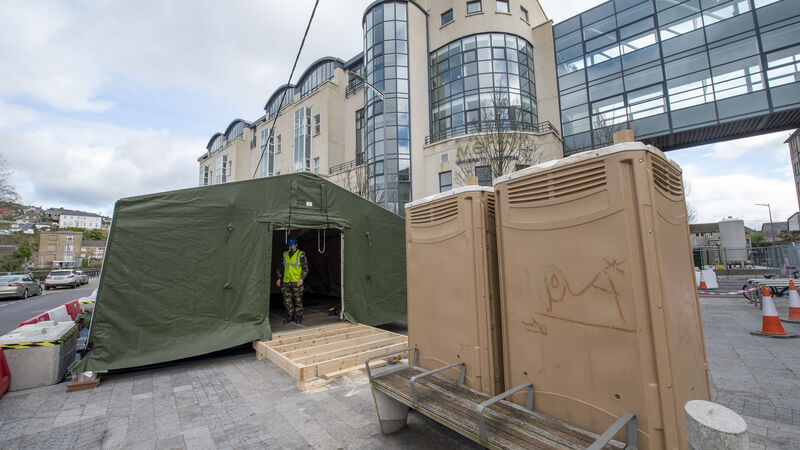Thousands of Defence Forces personnel on standby for Covid-19 battle

The scene outside the Mercy Hospital, Cork, where the army and navy erected a temporary staff screening tent. Picture Dan Linehan
The Defence Forces are prepared to put “thousands of personnel” into the battle against Covid-19 if the government needs them, according to the senior officer in charge of the military task force response to the virus.
Since the first Level 5 lockdown last March, members of the Army, Naval Service and Air Corps have been involved in numerous operations around the country, mainly as an aid to the HSE.










